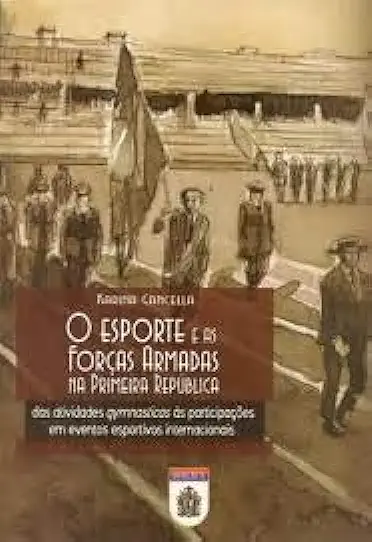
Sports and the Armed Forces in the First Republic - Karina Cancella
Sports and the Armed Forces in the First Republic: A History of Physical Education and Military Training in Brazil
Introduction
In this groundbreaking book, Karina Cancella explores the complex relationship between sports and the armed forces in Brazil during the First Republic (1889-1930). Drawing on a wealth of archival sources, Cancella argues that sports played a crucial role in shaping the identity of the Brazilian military and in promoting national unity and social order.
The Rise of Sports in Brazil
The late 19th century saw a dramatic rise in the popularity of sports in Brazil. This was due in part to the influence of European immigrants, who brought with them their own sporting traditions. But it was also due to the efforts of Brazilian intellectuals and politicians, who saw sports as a way to promote physical fitness, moral character, and national pride.
The Military and Sports
The Brazilian military was quick to recognize the potential of sports as a tool for training soldiers and promoting military values. In the early 20th century, the military began to incorporate sports into its training programs, and it also established a number of sports clubs and leagues. These clubs and leagues provided soldiers with an opportunity to compete against each other and to develop their physical and mental skills.
Sports and National Identity
Sports also played an important role in promoting national identity in Brazil. The Brazilian government used sports to showcase the country's progress and to project an image of strength and unity to the world. The 1920 Olympic Games, which were held in Antwerp, Belgium, were a particularly important moment in this regard. The Brazilian team won several medals at the Olympics, and its success helped to boost national pride and to create a sense of common identity among Brazilians.
Sports and Social Order
Sports also played a role in maintaining social order in Brazil. The military used sports to promote discipline and obedience among soldiers, and it also used sports to control the behavior of civilians. For example, the military organized sports events for workers and peasants, and it used these events to promote the values of hard work, loyalty, and respect for authority.
Conclusion
In Sports and the Armed Forces in the First Republic, Karina Cancella provides a fascinating account of the complex relationship between sports and the armed forces in Brazil. She shows how sports were used to train soldiers, promote national identity, and maintain social order. This book is a must-read for anyone interested in the history of Brazil, the history of sports, or the relationship between sports and the military.
Praise for Sports and the Armed Forces in the First Republic
"A groundbreaking study that sheds new light on the role of sports in Brazilian society. Cancella's work is essential reading for anyone interested in the history of Brazil, the history of sports, or the relationship between sports and the military." —John W. F. Dulles, University of Texas at Austin
"A fascinating and well-researched book that explores the complex relationship between sports and the armed forces in Brazil. Cancella's work is a major contribution to the historiography of Brazil and to the study of sports and society." —Richard W. Slatta, North Carolina State University
"A must-read for anyone interested in the history of Brazil, the history of sports, or the relationship between sports and the military. Cancella's work is a major contribution to the field." —J. R. Heineman, University of North Carolina at Chapel Hill